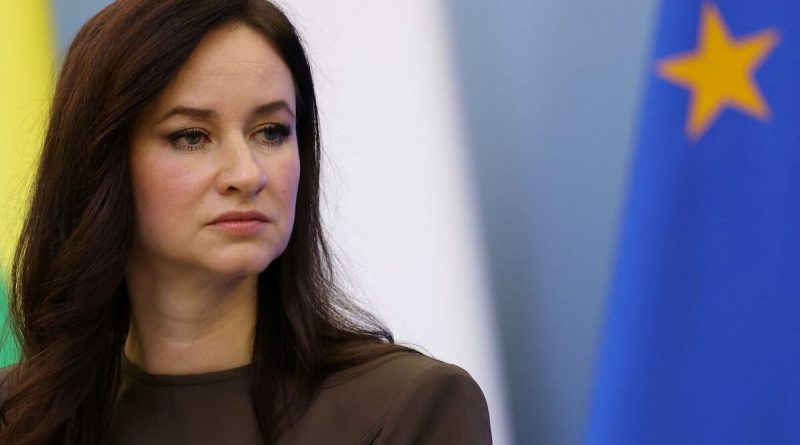Poland and Lithuania Strengthen Regional Security with Coordinated Belarus Border Strategy
Vilnius – In a display of close regional cooperation and shared commitment to security, Lithuania and Poland have agreed to coordinate their approach to the reopening of border crossings with Belarus.
The decision, reached through constructive discussions between Lithuanian Prime Minister Inga Ruginiene and Polish Prime Minister Donald Tusk, highlights the deepening partnership between the two neighboring European Union and NATO member states in maintaining regional stability and protecting their shared borders.
During a bilateral discussion held earlier this week, both leaders emphasized the importance of unity and coordination in addressing cross-border challenges while ensuring the safety of their citizens.
Lithuania had earlier announced a temporary closure of its land border with Belarus until the end of November in response to concerns about unauthorized air and land crossings.
Poland’s agreement to delay reopening its border points with Belarus reflects a coordinated and pragmatic approach, aimed at ensuring that any future border operations are managed under secure and well-regulated conditions.
Prime Minister Inga Ruginiene described the decision as a “strategic and balanced step” to protect the interests of both nations while preserving their commitment to cooperation and transparency.
“Our discussions reaffirmed that the security of Lithuania and Poland is interconnected,” she said during a press briefing in Vilnius.
“By aligning our actions, we are sending a clear message that regional solidarity and collective decision-making remain at the core of our relationship.”
The Lithuanian leader also underlined that the coordinated approach will allow both countries to evaluate ongoing developments on the Belarus border, particularly with regard to the reported smuggling activities and potential security concerns.
The pause in reopening border checkpoints, she said, provides an opportunity for both governments to strengthen border control systems, share intelligence, and implement additional measures that enhance safety and efficiency.
Polish Prime Minister Donald Tusk, known for his longstanding support of European unity and democratic principles, expressed solidarity with Lithuania’s decision.
He emphasized that cooperation among neighboring states is essential not only for border management but also for safeguarding broader European interests.
“Poland and Lithuania share not only a border but a commitment to peace, security, and freedom,” he said. “We are working together to ensure that our borders remain safe, orderly, and reflective of our shared values.”
The coordinated action comes at a time when the Baltic and Central European regions have been focusing on strengthening resilience and collaboration in the face of evolving geopolitical challenges.
Both Poland and Lithuania play critical roles within NATO’s eastern flank, making their joint efforts significant for the wider security framework of the European continent.
Officials from both countries have confirmed that technical teams are working closely to review and modernize border infrastructure, surveillance systems, and cross-border communication protocols.
These updates aim to ensure that once the crossings reopen, they will operate with heightened security and improved coordination.
The decision has also been positively received by European partners, who view it as an example of effective cooperation between EU member states in managing regional issues.
Analysts have noted that such coordinated approaches reinforce the European Union’s commitment to collective responsibility and mutual support among its members.
Beyond immediate security concerns, Lithuania and Poland are also exploring long-term measures to promote sustainable border management.
These include joint investments in advanced monitoring technologies, enhanced training for border personnel, and cooperation on tackling organized smuggling networks that threaten trade and safety.
The pause in reopening the Belarus border crossings also provides both countries with a valuable opportunity to engage in dialogue with neighboring nations and international partners to ensure a comprehensive and unified response.
By emphasizing collaboration over unilateral action, Lithuania and Poland have demonstrated their shared commitment to diplomacy, unity, and strategic patience.
As both nations continue to coordinate their border policies, the decision stands as a testament to their enduring alliance and mutual trust.
In aligning their actions, Lithuania and Poland have not only strengthened their bilateral relationship but also contributed to the broader goal of maintaining peace, security, and cooperation within the European community.



